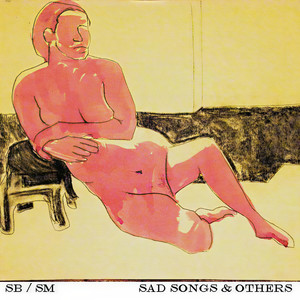
Sad Songs and Others
- 流派:Rock 摇滚
- 语种:英语
- 发行时间:2006-01-01
- 类型:录音室专辑
- 歌曲
- 时长
简介
Siphon some fumes from the American Primitive guitar meanderings of John Fahey, the kitchen-sink folk of Califone, the boozy, Southern gothic literacy of James McMurtry, the populist guitar fireworks of Dean Ween, and the decadent noise of the Jesus & Mary Chain and you’ll have a heady ether somewhat akin to that which Stephen Brower & the Silent Majority are trying to project. Brower crafted the band’s debut Sad Songs & Others over several quiet years in various Los Angeles apartments, usually alone with a cadre of cheap microphones, cheaper guitars, and cheaper still amps. Listening to the tracks on Sad Songs, one might well detect a distant door slam, dog bark, cricket chirp or bottle clink, and they’re meant to. The songs are laid bare - imperfect, untrained, and messy, as good folk art should rightly be. “La Baie des Anges” opens the set , a droning rattling dirge that draws as much from the languid, unsettling films of Michael Haneke and Bruno Dumont as it does from american primitive master John Fahey, the folk iconoclast in whose honor Brower (alongside M.Ward) conceived and co-produced the acclaimed 2006 tribute I am the Resurrection. Fahey is a major touchstone an inspiration for Brower, as Sad Songs’ two other instrumental tracks (“L’Eclisse” and “Le Beau Serge”) attest, but other influences abound, albeit somewhat surreptitiously, throughout Sad Songs. “Don’t Sweat It,” the album’s only cover, belies Brower’s admiration for tongue-in-cheek genre hoppers Ween, but the track itself plays as a re-imagining of sorts, stripping away the original’s gas-huffing abrasion and offering instead a stripped down stoned folk epic. And while “Don’t Sweat It” might stray far the original, Dean Ween’s guitar techniques serve as a point of reference throughout, most explicitly in the guitar driven wordless chorus of the title track. Elsewhere on Sad Songs Brower offers the antiheroic plights of a Los Angeles drunk resigned to his fate in “Barstow by Noon”, a Deep South kid trafficking in AK-47s, Oxy Contin, and bootleg beer in “Pisgah,” and a Hollywood hopeful at peace with his own flawed approach in “Hillsong,” to name a few. The character sketches that fill Sad Songs are concise, elliptical, and perhaps even unresolved, but each one exhibits a candor and vulnerability that is at once disarming and lasting, terms that easily apply to the whole of Sad Songs and Others.

